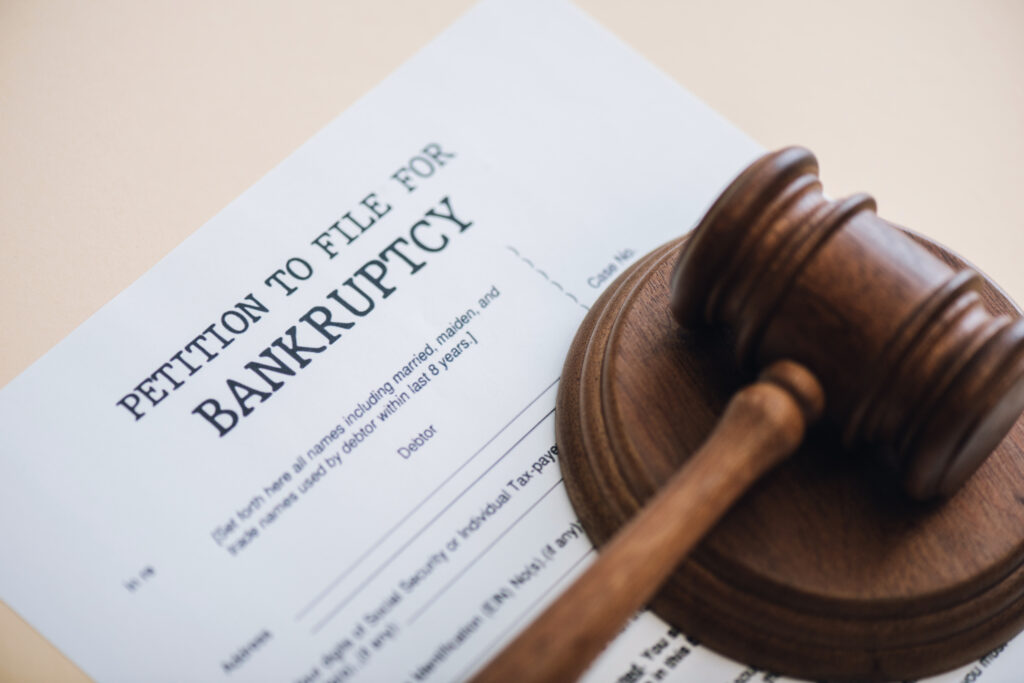
If you plan to file for bankruptcy in Colorado Springs you will no doubt meet with an attorney who will walk you through all your options, but most people want a little preview before they visit a law office. Unless you’ve been through the bankruptcy process before it’s likely you have a long list of questions, such as “will I go to court?” or “will I be able to keep my house?”
In an attempt to prepare for the inevitable it is better to seek the advice of an experienced bankruptcy lawyer and avoid the temptation to just “Google it.” While there is plenty of data available about different types of bankruptcy, few online sources will accurately summarize what to expect/
Below are five things you can expect when filing for bankruptcy in Colorado:
1. You will have to go to court. Before you start worrying about a long, drawn-out court process, in most cases you will only need to attend one hearing, known as the “meeting of creditors.” This is a short and simple hearing where the trustee will ask you a few very basic questions. Creditors are also allowed to attend and ask questions but they must abide by certain state bankruptcy guidelines. **as of November 2022, most hearings are held remotely over the phone at Mr. Swift’s Office.
2. Your case will be complete within 4 to 6 months from the date of filing. This doesn’t mean you should just go ahead and file right away. While bankruptcy can be very helpful in resolving financial woes, it is not always the best solution for everyone. In addition, it’s important to choose the right time to file for bankruptcy relief. Most experts recommend you wait as long as possible to file because you can only do so one time every six years. Saving this option until you absolutely need it, but you may not even need to file. For example, if you have no “non-exempt” property or wages, there is nothing that the creditors can take from you.
3. There are some very specific things that bankruptcy can do. One of the most important things is the “discharge” or elimination of debts. It can stop a home foreclosure and allow you to catch up on missed payments, and it can stop the repossession of automobiles or other property, sometimes even forcing a creditor to return property that has already been repossessed. If your wages are being garnished or a creditor is harassing you for payment, filing for bankruptcy will put a stop to that right away. It can also prevent the termination of utility services.
4. There are some very specific things that a bankruptcy can’t do. One of these is the discharge of debts that arise after the bankruptcy filing. It also cannot eliminate certain rights of secured creditors, particularly with car loans and a home mortgage, which means payments must be made on a regular basis in order to retain ownership of the property. In addition, certain types of debt are never discharged in a bankruptcy. These include alimony, child support, most student loans, criminal fines or restitution, and most taxes.
5. You will need to decide between Chapter 7 and Chapter 13 bankruptcy. It’s not enough to show up a bankruptcy attorney’s office and just “file for bankruptcy.” You must know the differences between Chapter 7 and Chapter 13 as well as which one you prefer. Below is a description of each type of bankruptcy.
- Chapter 7: Also known as a “liquidation,” or “fresh start” bankruptcy, Chapter 7 will discharge your debts on the condition that you relinquish any nonexempt property to the trustee. The proceeds from selling your nonexempt property will be used to repay your creditors but you hold onto secured property if you stay current with the payments.
- Chapter 13: Commonly known as a “reorganization” or wage earner plan, Chapter 13 lets you keep valuable property such as a car or home, which might have otherwise been lost because of past-due payments. In a Chapter 13 reorganization you will have between three and five years to repay the arrears from your lapsed payments, but you must also continue to make regular payments.
Is bankruptcy an option for you? Only you know the honest state of your finances and whether you are being threatened with foreclosure, repossession or garnishment. Bankruptcy is a great way to proactively deal with these problems, but everyone’s situation is different. If you have questions about filing bankruptcy in Colorado, talk to a professional bankruptcy attorney at the Colorado Springs law offices of Stephen J. Swift.







